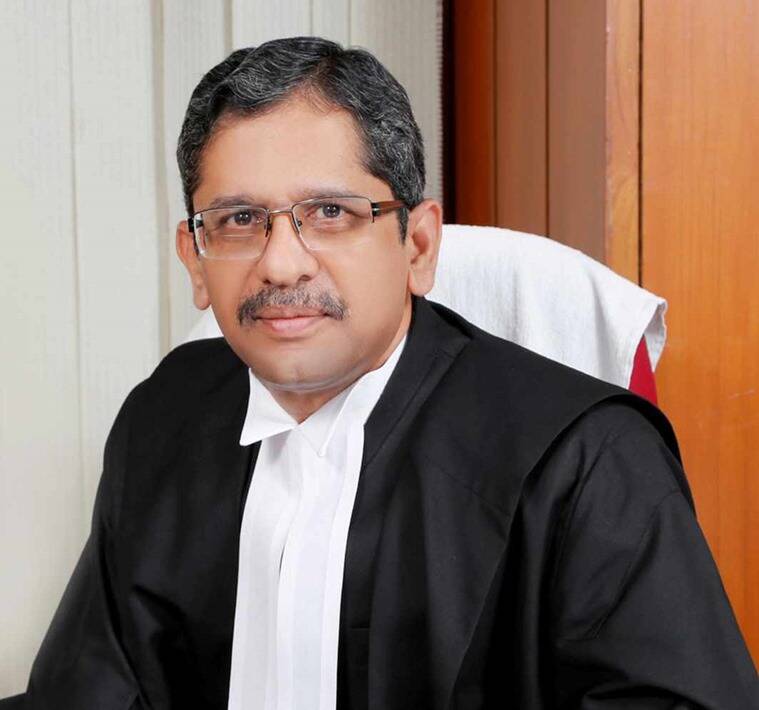
Law minister on stage, CJI laments state of judicial infrastructure

Judicial infrastructure is important for improving access to justice, Chief Justice of India NV Ramana said on Saturday, noting that it maintenance and improvement was being carried out in an ad-hoc and unplanned manner.
Ramana was speaking at the inaugural ceremony of the new annex building of the Bombay High Court’s Aurangabad Bench in presence of Union Law Minister Kiren Rijiju.
“The judicial infrastructure for courts in India has always been an afterthought. It is because of this mindset that courts in India still operate with dilapidated structures, making it difficult to perform effectively,” the Chief Justice said.
Also read: ‘Sorry state of affairs in Parliament’, no clarity in laws: CJI
“Only 5 per cent of court complexes have basic medical aid, and 26 per cent of the courts don’t have separate toilets for women. Sixteen per cent of the courts don’t even have toilets for men. Nearly 50 per cent of the court complexes don’t have a library, and 46 per cent don’t have the facility to purify water,” the CJI said.
Ramana stressed on the need of proper infrastructure, and said: “If you want a different outcome from the judicial system, we cannot continue to work in this present condition.”
He further said that the building inaugurated at Aurangabad was envisioned in 2011. “That it has taken 10 years for this vision to be implemented is extremely worrisome. This is a deeper problem that has plugged our judicial infrastructure planning in our country since the Independence,” the CJI said.
“An effective judiciary can aid in the effective growth of the economy.”
The CJI said he has sent a proposal for the establishment of the National Judicial Infrastructural Authority to the law minister, and added that he was hoping that the issue would be taken up during the winter session of Parliament.
Also read: Sedition law colonial, when will you repeal it? SC asks Centre
The CJI said many ideas of social revolution that have resulted in the freedom and liberty that we all take for granted today have been born out of this fertile and progressive land. “Be it the extraordinary Savitri Phule or the pioneering feminist Jyotirao Phule or the legendary Dr Bhimrao Babasaheb Ambedkar, they always aspired for an egalitarian society where every individuals right to dignity is honoured. Together they have set in motion an irreversible social change which has finally evolved in our Constitution.”
Ramana said that it is a common notion that only criminals and victims approach court and people take pride in stating that they have never visited or seen a court building in their lifetime. “But it is high time we take the efforts to remove this taboo for the affirmation of a citizens rights. The common man deals with multiple legal issues during his lifetime. One must never hesitate to approach the courts. After all, peoples faith in the judiciary is one the biggest strength of democracy.” the CJI said.


